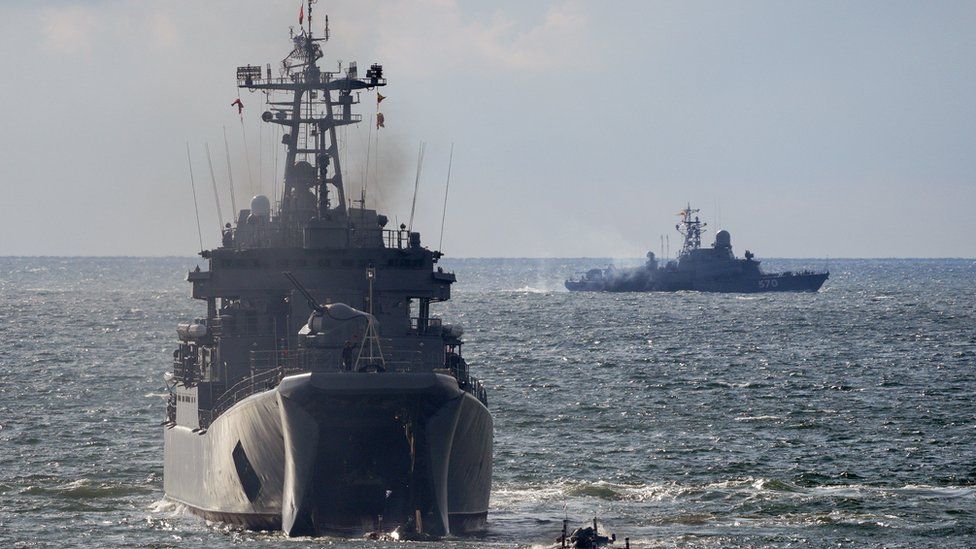A Russian military exercise has been moved further from the Irish coast, after pressure from politicians and fishermen.
It has been moved outside of the Republic’s Exclusive Economic Zone (EEZ).
The ‘live-fire’ exercise had been due to take place 240km off the southwest coast.
Irish Foreign Affairs Minister Simon Coveney said the exercises would be “relocated outside of Ireland’s EEZ”.
Mr Coveney had previously said Ireland would not welcome drills being carried out in the EEZ, but claimed the country had no power to stop Russia.
This week I wrote to my counterpart, the Minister of Defence of Russia, to request a reconsideration of naval exercises off the Irish coast. This evening I received a letter confirming the Russian exercises will be relocated outside of Ireland’s EEZ. I welcome this response.
— Simon Coveney (@simoncoveney) January 29, 2022
The decision to relocate the exercise had been made as a “gesture of goodwill”, the Russian ambassador to Ireland, Yuri Filatov, said on Saturday.
Mr Filaov said the decision was taken so as not to “hinder fishing activities by the Irish vessels in the traditional fishing areas”.
A group of fishermen who used the area had also warned that they would stage peaceful protests against the action if it went ahead as originally planned.
The Irish South and West Fish Producers Organisation had highlighted the area’s importance for members.
They said their desire was to protect biodiversity and marine life.
The Irish Junior Minister Michael Noonan had also warned that the planned drills could also have “devastating” consequences for a number of species in the area, including several types of whales.
Mr Filatov previously described the controversy as “overblown”.
At a press conference in Dublin on Monday he referred to the debate as a “non-story” which had become part of a “propaganda campaign” about an alleged Russian threat to Europe.

The Chairman of the Oireachtas Foreign Affairs and Defence Committee said he was hopeful Mr Filatov would appear to answer the committee’s questions.
While stating that no ambassador was accountable to the Irish parliament, he said there were “significant issues of public interest” that the committee should be briefed on.


























